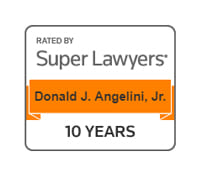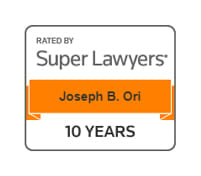Where High-Powered Advocacy Meets Personalized Care
Ori Law Group has earned a reputation for combining forceful representation with deep dedication to our clients. In the face of catastrophic personal injuries, rely on a team with over 75 years of combined experience and over $150 million in recoveries.
Serving Clients Nationwide From Our Chicago Office
Formidable Resources. People-Focused Service.
When you work with Ori Law Group, you work with more than a team of experienced personal injury litigators. You put a firm committed to excellence in client service and courtroom representation on your side.
We are focused on the results of your case – and on your emotional and physical recovery. Our team leverages over 75 years of combined trial experience, a network of focused and fearless attorneys, and an obsession with superior research and advocacy to secure the personal injury compensation you need. They do so while working closely with you to understand your needs, answer your questions, and ensure you are informed and supported throughout the entirety of the legal process.
Why Choose Ori Law Group?
In the aftermath of a severe personal injury, finding the right lawyer can seem overwhelming. As you or your loved one seek to rebuild a life shattered by an accident, it can be difficult to choose who you trust to advance your fight for justice.
At Ori Law Group, we distinguish ourselves through:
- Our trial experience: As dedicated personal injury litigators, we offer skillful, strategic representation through every step of the trial process.
- Our exemplary results: Since 2005, our team has obtained over $150 million in verdicts and settlements, in personal injury cases across the United States.
- Our focus on you: Our attorneys meet with you personally to understand the complexities of your unique situation. You’re not just hiring a team with powerful experience – you’re partnering directly with an advocate who will be at your side throughout your case.
We offer free consultations so that you can determine whether are services are appropriate for your situation. We are ready to help you; call us today.

Over $150 Million In Personal Injury Recovery
Brain Injury
$12 Million
Recovered for a 6-year-old child who sustained an anoxic brain injury due to professional negligence.
Highway Trucking Accident
$4 Million
Settlement for a father, age 30, whose child was killed in a highway trucking accident in Indiana.
Hospital & Physician Negligence
$11 Million
Recovered for a victim, age 50, of hospital and physician negligence.
Hypoxic Brain Injury
$9.8 Million
Recovered for a child, age 9, who sustained a hypoxic brain injury due to hospital and physician negligence.
Pedestrian Accident
$2.5 Million
Settlement to a minor pedestrian who sustained a severe pelvic fracture when she was struck by a school bus she had exited.
Trucking Accident
$3.3 Million
Recovered for the widow of 59-year-old male victim of a trucking accident.
Meet Your Legal Team

Joseph Ori
Partner

Kristen Ori
Partner

Donald J. Angelini Jr.
Of Counsel

Robert Mondo
Of Counsel

Hear From People We’ve Helped
“Went here after getting screwed over by another attorney! Attorney Donald Angelini and his assistant are absolutely wonderful! Made me feel at ease the very first time I met with them…”
– Brian G.
“Everyone on the team did a great job achieving my goals in court. Overall, it was a great experience, and I have 100% total confidence in this law firm. I highly recommend.”
– Q. Lude
Compassion And Commitment For Every Case
At Ori Law Group, our clients have repeatedly trusted us to secure the compensation they need in catastrophic personal injury cases. When their lives have been upended or cut short by vehicle collisions, crashes, faulty products or workplace incidents, they turn to us for our thorough understanding of the law, our tenacious telling of their story, and our continuous care for their well-being and recovery.



